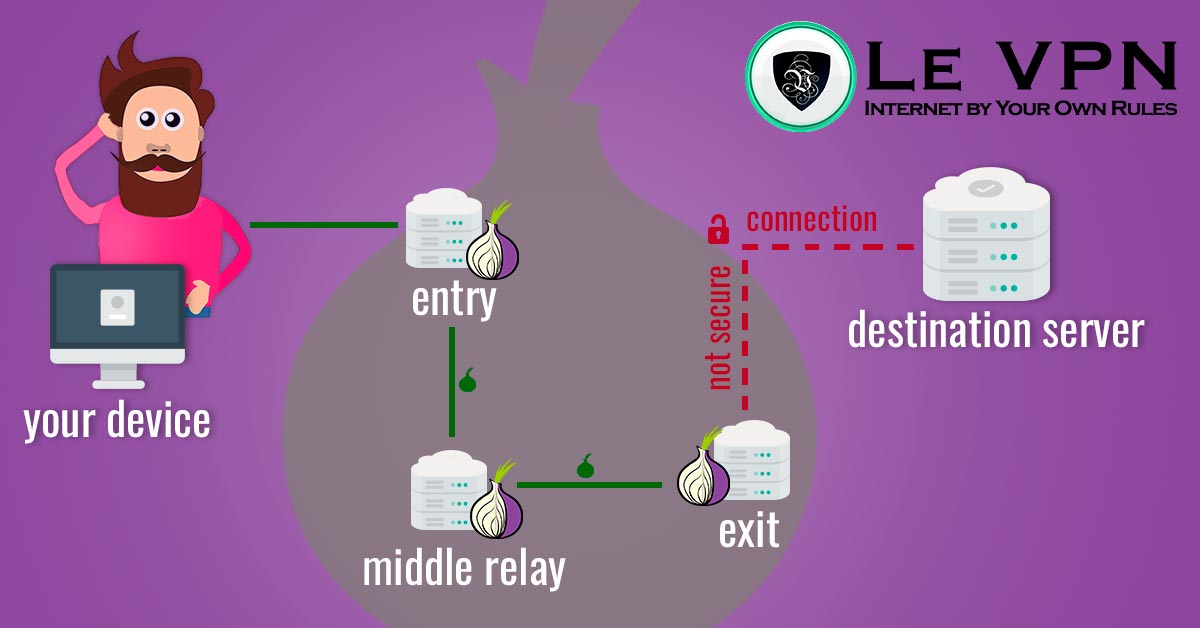Featured
Table of Contents
Combining A Vpn With Tor: If And When It Makes Sense
In practice, Tor Internet browser is totally free, while VPNs are usually paid, that makes your option easy, right? You ought to just go with Tor and stop. Well,? Today, I wish to offer you a full comparison of Tor vs VPN and describe what they represent, their differences, use cases, and a lot more.
To start this Tor vs VPN contrast, I initially need to discuss what these tools represent. Besides, offering you a clear meaning of what they are and how they work will help you comprehend their distinctions, so pay attention. Starting with Tor, this term is an abbreviation for "The Onion Router".
Nord, VPN It's essential to bear in mind that this is a tool for privacy and not privacy I'll describe why soon. When it concerns Tor nodes, they're held and maintained by volunteers, so we're discussing a decentralized service, rather than a central service which is the case with a VPN.
The silver lining is privacy due to the fact that nodes aren't run by any particular companies, so you aren't running the risk of saving and logging your browsing activity by that business. On the other hand, the security of each node depends upon the person that's keeping it. As such, a node can be compromised by a hacker, let's say, who will have the ability to trace your connection.
Combining A Vpn With Tor: If And When It Makes Sense
The entry node is more vital since, when connecting to Tor, your ISP can see that you did that through the entry node. That's why lots of people use a VPN with Tor to encrypt their connection and avoid the ISP from seeing their Tor use. We'll talk about that in the future in this Tor vs VPN article.

Its "The Onion Router" name comes from the reality that it peels the layers of file encryption likewise to the onion layers. Below, I described how Tor works and the procedure of securing and decrypting your requests.
When you link to the Tor network and you send out a demand, you get triple encryption for each node. There's the entry node (typically called the guard node), the middle node (or middle server), and the exit node. Tor sends your request to the entry node, which removes the first layer of encryption.
The entry node can't read the encrypted content of the request, so it still can't trace your activities inside the Tor network. The traffic is then sent to the middle node, which eliminates another layer of file encryption and sends the encrypted traffic to the exit node. Lastly, the exit node peels the final layer of file encryption, which is why it can see the encrypted request but it can't determine who is sending it since it can't see your IP address.
Tor Vs Vpn 2023 [Know Which One Is Best To Use]

If you're looking to remain anonymous online and you're considering using Tor, I believe it's good to know more about its benefits and disadvantages, so examine them out below. The triple layer of encryption ensures 100% anonymity when utilizing Tor Web browser It's totally free and doesn't require any memberships It's a decentralized, open-source network with no tracking and monitoring Tor Internet browser is capable of going on the dark web The entry node can read your IP address and make it noticeable to your ISP when utilizing Tor Slows down your web speed significantly due to sophisticated encryption Nodes are run by volunteers who might refrain from doing a great job at making sure they're protected You can't select an IP address from a specific country, so you can't bypass geo-blocks Tor Browser does not deal with all platforms Wondering what are the differences in between Tor and VPN? Well, for the start, a VPN is a tool for privacy, which implies it'll hide your identity and prevent anyone from seeing who you are.
VPN services offer thousands of servers in different countries, so they allow you to link to any of them quickly and get an IP from the nation you need. Then, each request you send is routed through a VPN tunnel where it is sent out to a VPN server which decrypts it and connects you to the site you want.
, for example, while Tor encrypts just the part of the connection sent through the Tor Browser.

With a single layer of file encryption, the VPN really goes through less actions to protect your connection which has a huge benefit much faster speeds and much better efficiency. Finally, let's speak about the advantages and disadvantages of VPNs and see what they succeed and what are their imperfections. They're really easy to utilize VPNs can be installed on every platform (Windows, i, OS, Linux, Android, mac, OS, routers,) You can choose an IP address from a particular country, letting you bypass geo-restrictions There's a higher degree of accountability because you understand who owns the VPN servers VPNs are extremely fast and superior companies use 10 Gbps servers Advanced security features like a kill switch, advertisement blocker, and Multi, Hop Total personal privacy, thanks to sophisticated file encryption and the ability to conceal your original IP It's a paid service which can be an issue for budget-constricted users Some VPN services are known for saving logs (Hola VPN, Ninja, VPN, Betternet,) You should pick a reliable VPN that has a no-logs policy since you're handing over your privacy/anonymity to that business Now that you what Tor and VPN are, I feel the need to rapidly summarize their distinctions simply to make certain you understand everything well.
Latest Posts
Best Vpns For Remote Workers & Freelancers In 2023
Best Vpn Solution For Your Business
The Best Vpn For Business In 2023: Top 8 Corporate ...